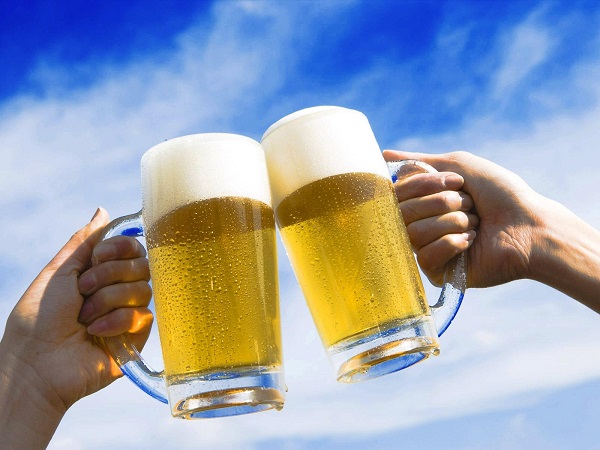
Alcohol is a common part of many people’s social life. Whether it’s an after-work beer with colleagues, a glass of wine with dinner or a birthday party with cocktails, alcohol is often present. But how does alcohol consumption fit in with an active lifestyle and athletic performance? As a personal trainer and nutrition consultant, I come across this question often, so I’d like to shed some light on how alcohol can affect your performance and health.
Alcohol and physical fitness
1. Dehydration: alcohol is a diuretic, which means it promotes the elimination of water from the body. This can cause dehydration, which is especially problematic for athletes who need to be well hydrated for optimal performance.
2. Reduced muscle recovery: alcohol consumption after training can slow down the muscle recovery process. Alcohol interferes with protein synthesis, a key process for muscle tissue repair and growth.
3. Impaired coordination and reaction time: Alcohol adversely affects the central nervous system, which can lead to impaired coordination, reaction time and balance – skills essential for safe and effective performance of sporting activities.
4. Decreased coordination and reaction time increase the risk of injury because the body is unable to respond adequately to changes in the environment or to unexpected situations.
Alcohol and body composition
1. Empty calories: Alcohol contains high amounts of calories with no nutritional value. These “empty calories” can contribute to weight gain, which can be especially undesirable for those trying to maintain a slim line or reduce body fat.
2. Inhibition of fat burning: alcohol consumption can slow the fat burning process because the body prefers to metabolize alcohol over fat. This can complicate weight loss or weight maintenance efforts.
Alcohol and psychological well-being
1. Impaired sleep quality: Alcohol can disrupt the sleep cycle, leading to poorer sleep quality. Good sleep is crucial for the body’s recovery and overall mental well-being, which has a direct impact on athletic performance.
2. Alcohol can affect neurotransmitter levels in the brain, which can lead to mood changes, including an increased risk of depression and anxiety.
Conclusion
Alcohol and sport do not go hand in hand. If you’re trying to achieve specific sporting goals, such as improving your performance, reducing body fat or building muscle mass, it’s important to consider the effect alcohol has on your body and mind. This doesn’t mean that you have to cut out alcohol completely, but it is advisable to limit your alcohol consumption and always plan it so that it interferes as little as possible with your training regime and goals. Always remember that health and performance should be your priority.
Vladimir Veverka
Personal trainer and nutrition advisor
Vladimír Veverka
Xplore Fitness
Na Příkopě 17/1047
Prague 1